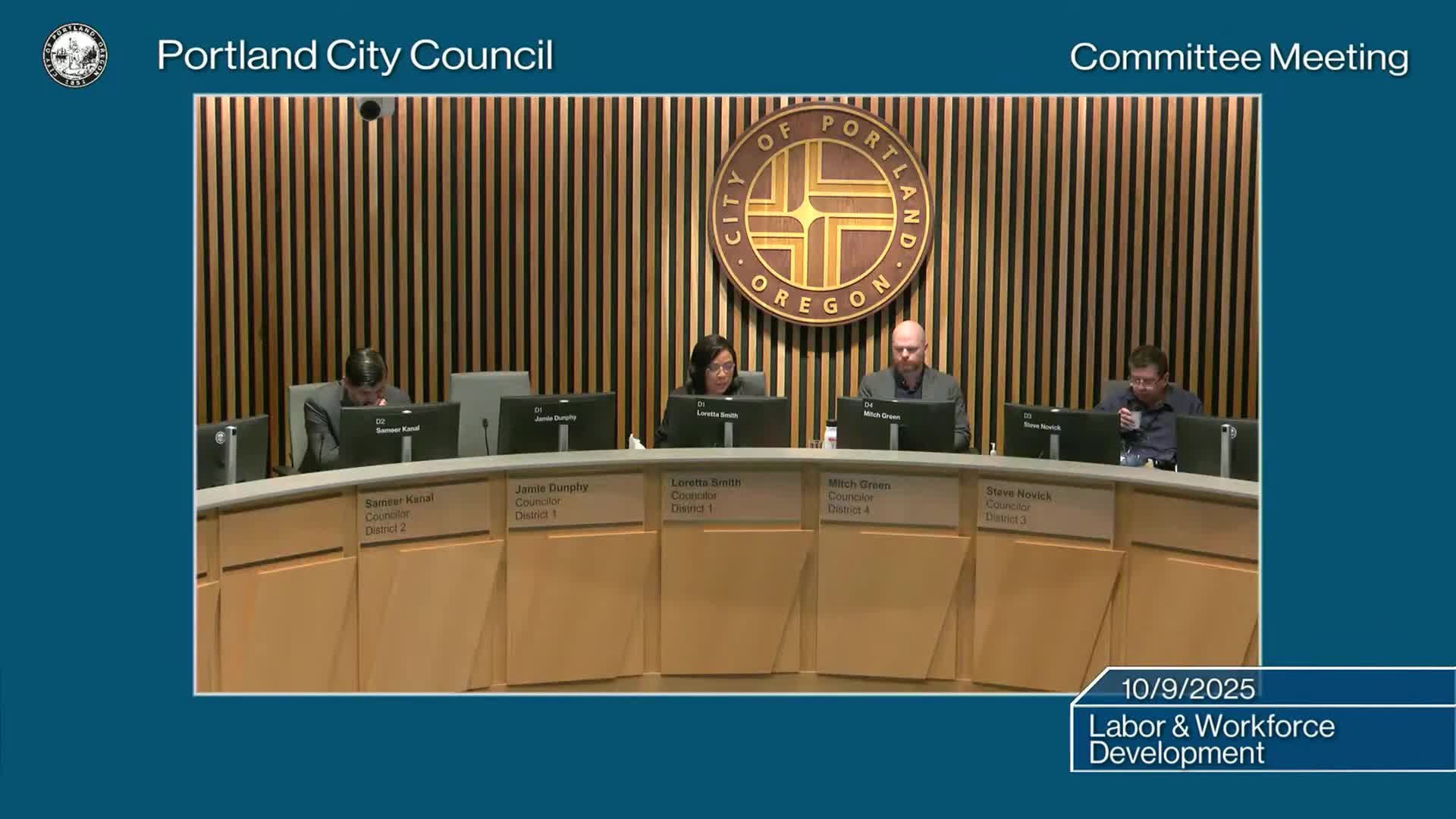Portland council committee hears advocates describe widespread wage theft, enforcement gaps
Get AI-powered insights, summaries, and transcripts
Subscribe
Summary
Advocates told the Labor and Workforce Development Committee that wage theft takes many forms across low‑wage sectors, that state enforcement is backlogged, and that the city can use procurement and transparency tools to reduce abuse.
Wage theft is a prominent problem in Oregon, Councilor Loretta Smith said Thursday as the Labor and Workforce Development Committee opened a three‑part discussion on unpaid wages and worker protections.
Advocates from the Northwest Workers Justice Project and allied labor groups told the committee that unpaid overtime, misclassification, withheld tips and payroll deductions are common across low‑wage industries and that state enforcement capacity has not kept pace with complaints. "My name is Kate Susman. I'm with the Northwest Workers Justice Project," Susman said in opening remarks, summarizing the group's research and client work.
Why it matters: Advocates said wage theft reduces household income, pushes workers toward poverty and burdens public safety‑net programs. Committee members focused on ways the city can act where state and federal enforcement are slow or backlogged.
Key facts presented to the committee included a Rutgers study cited by advocates showing racial, gender and citizenship disparities in wage theft risk; local data indicating that certain sectors, such as restaurants, private households and agriculture, have higher violation rates; and a sharp rise in complaints to the Oregon Bureau of Labor and Industries (BOLI) after 2020 when BOLI put its complaint form online.
Advocates and council members discussed several city‑level options: a transparency ordinance tied to public contracts, stronger procurement standards to favor contractors with clean labor records, deputization programs that fund community groups to do outreach and worker interviews on job sites, and pairing those steps with state advocacy to increase BOLI capacity.
The committee heard that BOLI has a substantial backlog and limited staff: advocates said the agency saw about a 208% increase in claims over a recent four‑year span while its staffing and budget did not rise proportionally. Committee members described that backlog as a practical barrier to timely relief for workers.
Councilors sought examples and next steps. Councilor Green urged the committee to press for more resources for BOLI and to consider local ordinances that do not conflict with state law. Susman and other witnesses pointed to local programs in Santa Clara County and Seattle as models for community‑centered enforcement or city labor standards offices.
The committee did not take formal action Thursday; members asked staff to draft potential ordinance language and to continue community engagement. Several councilors said they would pursue procurement‑focused measures during the next budget cycle and asked advocates to remain involved in drafting any city ordinance.
The committee scheduled further discussion and asked staff to bring back proposals that balance enforceability with the city’s legal limits and budget constraints.
